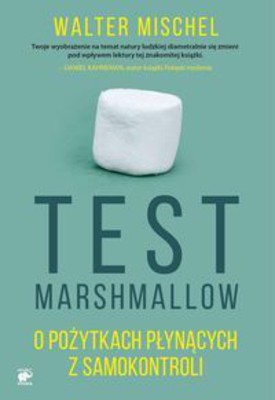

The exact source of self-control remains a mystery: Is it a product of nature, of nurture or an acquired cognitive skill of some kind? Researchers have been able to identity two types: “Hot” self-control is “emotional, reflexive unconscious” the “cool” variety is “cognitive, reflective, slower and effortful.” Undoubtedly, there will be nuances down the road, further complicating the picture, but for now, Mischel gets to the heart of the matter. Mischel also notes that people with emotional grounding, advanced social skills and off-the-charts intellectual abilities can still be crippled by self-control issues.

The preponderance of evidence has not yet come down on one side or the other, and he acknowledges the powerful drive for instant gratification-he, too, wants it now, whatever it is, not at some nebulous time in the future. These are preliminary findings, notes the author, who developed the classic “marshmallow experiment,” which illustrates ideas of self-control and delayed gratification. Numerous research studies have suggested that those who practice self-control do better on their SATs, have great reserves of self-worth, less stress, and have less incidence of obesity and addiction. Mischel (Psychology/Columbia Univ.) argues that our ability to voluntarily exercise self-restraint in pursuit of that just-got-to-have-it desire provides children with a powerful tool that can help them succeed later in life.


 0 kommentar(er)
0 kommentar(er)
